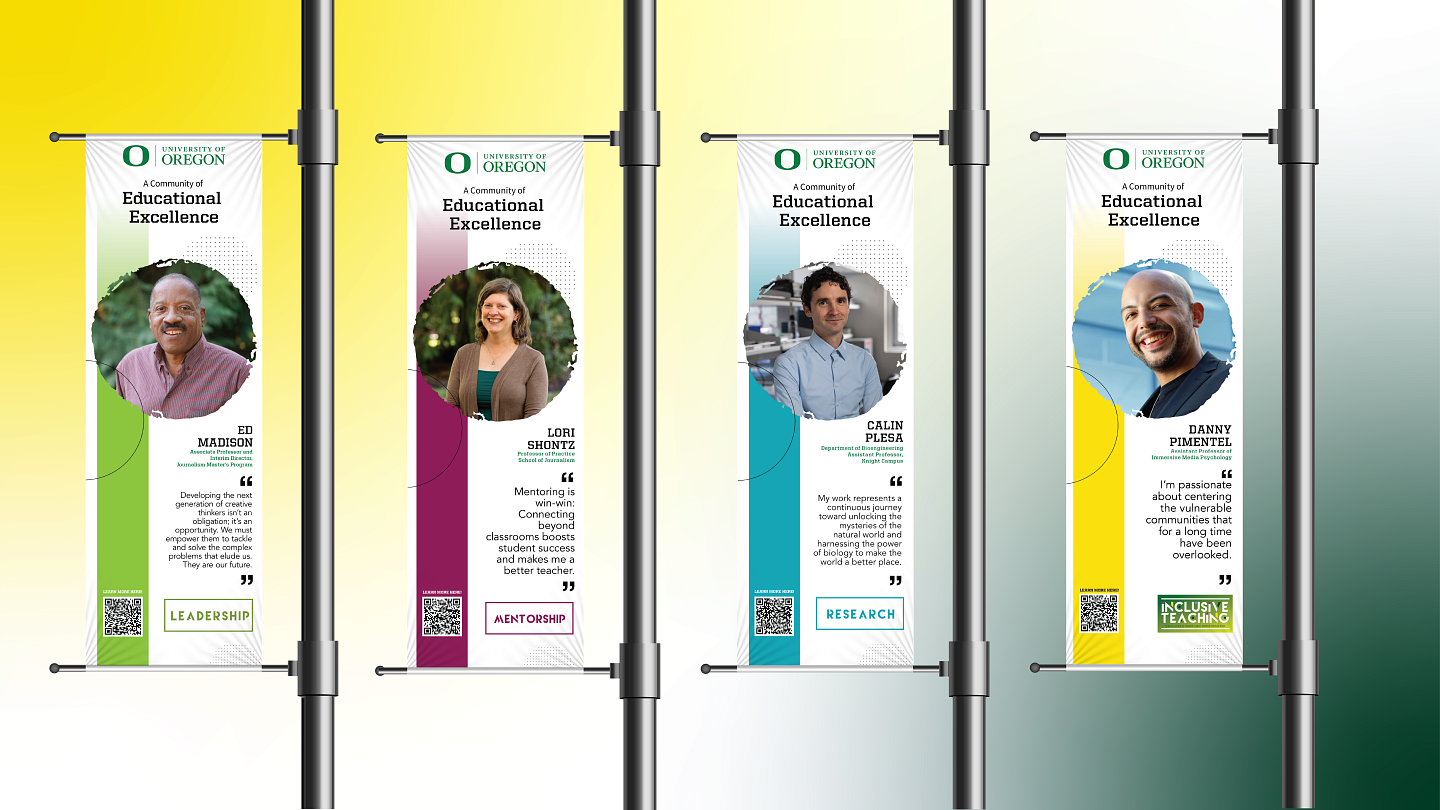
A Community of Educational Excellence
The University of Oregon is made up of a community of excellent educators who prepare students for success. The Office of the Provost acknowledges some of these community members who bring their unique backgrounds into the classroom and excel in research, leadership, and inclusive teaching.
RESEARCH • LEADERSHIP • MENTORSHIP • TEACHING
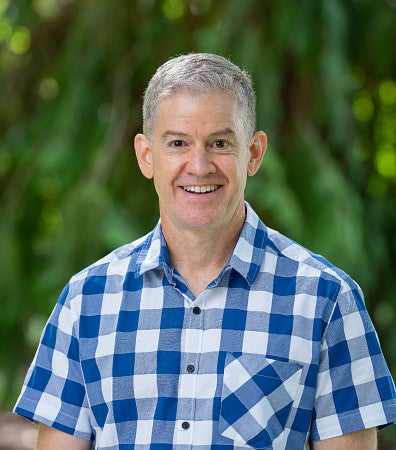
Andrew Lovering
Professor of Human Physiology
"My research is focused on cardiopulmonary physiology in extreme environments ranging from high altitude and space (hypobaria), to SCUBA diving and free diving (hyperbaria). Doing research in extreme environments has created opportunities for our laboratory group to perform research all over the globe in places like Canada, Bolivia, Nepal, China, Germany, and Croatia. Oxygen transport, pulmonary vascular control, and regulation and sleep are among the many things we measure in my laboratory to answer questions important to the National Institutes of Health, the Department of Defense and NASA. Graduate and undergraduate research is a key part of my research endeavor with 17 students completing Clark Honors College thesis projects in my laboratory in 16 years. My personal interests include being active outdoors in extreme environments as much as possible."
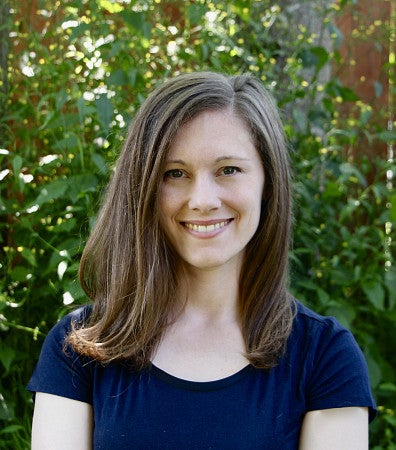
Anne Brown
Assistant Professor of Planning, Public Policy, and Management
"Transportation structures and resources critically shape peoples’ access to opportunities. Historically inequitable transportation investments and policies in the US have largely created two groups of travelers: mobility haves, who travel easily across space to access economic and social opportunities, and mobility have-nots, for whom access to opportunity is often curtailed by limited transportation options. I investigate the equity implications of transportation modes, policies, and plans. In particular, I examine how travel behavior and equity relate to the rapid emergence of shared mobility—such as Uber, Lyft, e-scooters, microtransit, and bikeshare—which present decision-makers with new opportunities to question existing policies and rethink the future. Research-informed planning and policymaking in transportation can inform more equitable planning, policies, and communities."
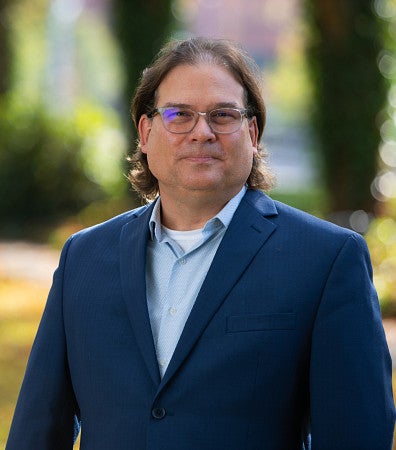
Dave DeGarmo
Research Professor, College of Education
"As a first-generation college graduate, I have a deep appreciation for potential visible and invisible identities that can be strengths or barriers for students navigating their programs. I take pride in formal, and more so, informal mentoring of students. I have maintained a commitment to conducting research with underrepresented communities and understanding mitigating factors for socially disadvantaged contexts. I have a substantive focus on preventive interventions for families at-risk for compromised parenting with an emphasis on fathers, including work on deployed fathers and families, single parent fathers, and fathers using substances. I am particularly proud of work improving COVID-19 testing rates in the Oregon Latinx population."
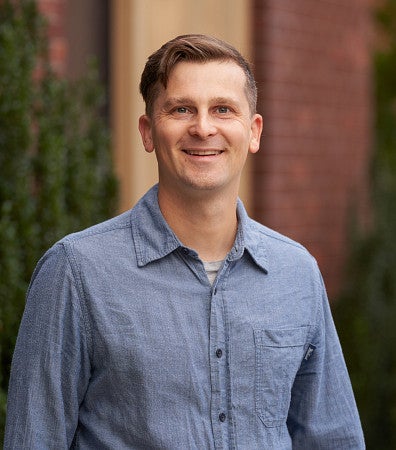
Jon Bellona
Senior Instructor I of Audio Production
"I am a sound artist and educator who specializes in digital technologies. I employ sonification methods, data mapping techniques, audio technologies, and even instrument building to explore our sounding world and the unheard. Through sound and listening—the power to amplify and the power to connect—I strive to develop experiences that connect us to each other and our environment. As Career Faculty, I love fostering a classroom community that uses sound and listening as a way to enrich lives and audio research practices. I am proud to guide students in creative research—crafting music albums, developing data sonifications, and even building audio software. Life is a creative act. And at Oregon, I get to live at the intersection of art, science, and technology, guided by the power of listening and innovation."
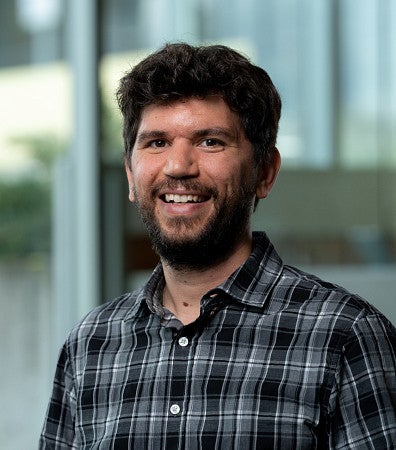
Drew Nobile
Associate Professor of Music Theory
"It’s fascinating how the way we listen to music both reflects and shapes who we are. In my research, I study how elements of popular songs—rhythms, grooves, chords, lyrics, timbres—combine to create meaning in various ways. My current book project focuses on how singers manipulate their voice to project different social and personal identities, with case-study chapters on Alanis Morissette, Wilco, and Beyoncé. This work is particularly important to me because it highlights how music’s “stuff”—its notes, chords, sounds—interacts with broad humanistic concerns such as gender, race, embodiment, etc."
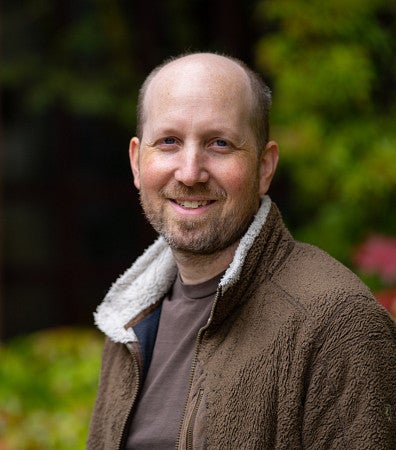
Eric Corwin
Professor of Physics
"The study of jammed systems began as a culinary curiosity in 1727, when the Reverend Stephen Hales studied how peas pack when compressed in an iron pot. Fill a pot with peas and you can run your hand through them. This is because they can flow out of the way much as a liquid would. But as pressure exerted on them, and thus their density, is increased, you will find that there is a critical point, above which the peas “jam” into a stable but amorphous solid. This behavior is very general. Pretty much everything composed of discrete chunks can go through a jamming transition: colloids in solution, a pile of sand, a jar full of candies, even cars in a traffic jam. Even thermal systems can undergo this same sort of transition, most easily observed as molten glass cools into everyday window glass. We understand the universe now so much better than Hales did in 1727, yet we still don’t have a robust understanding of why things jam the way that they do nor how glasses form."
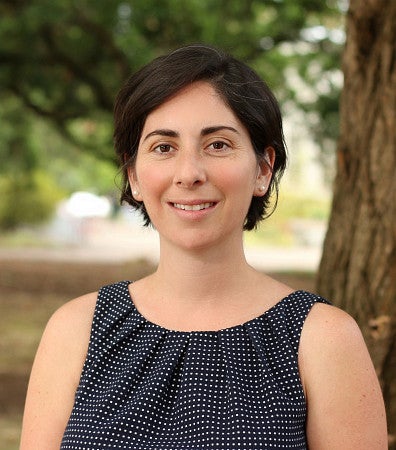
Melissa Graboyes
Associate Professor of History
"My goal when teaching is to bring my research directly into the classroom to inspire students. By sharing information about my own research on global health, history, and the African continent, I seek to facilitate an engaged room of learners, to have students take ownership over the material. This exposure to my research includes teaching with my own draft book chapters, working with primary source materials, and bringing in guests from the African continent."
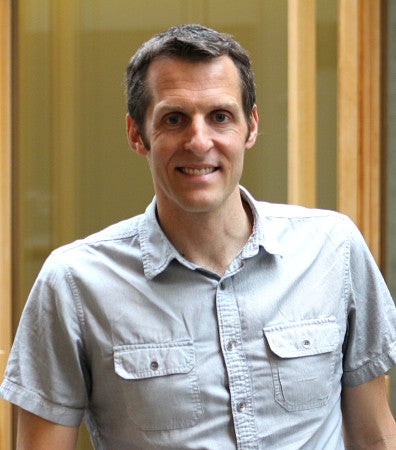
Mike Harms
Associate Professor of Chemistry & Biochemistry
"My goal is for the Harms lab to be a place of human thriving. Part of this is doing excellent and impactful science. Members of the lab work on projects to understand how proteins evolve new functions. This is important for predicting the evolution of disease-causing organisms and for engineering proteins to do new jobs. In addition to doing great research, human thriving means that each lab member is healthy and growing as a person, that the work we do makes the world a better place, and that we strive to make the scientific enterprise more inclusive and diverse."
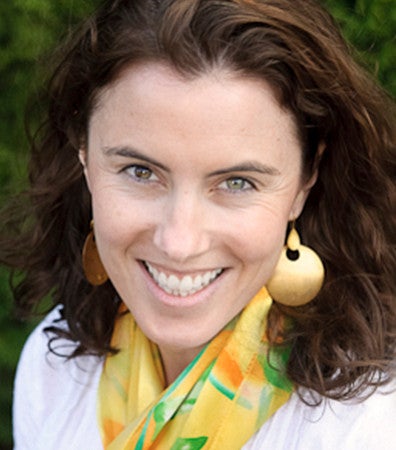
Maureen Zalewski
Director of Clinical Training and Associate Professor of Psychology
"When parents deal with mental health challenges, their families are often impacted. Our research provides insight into how this process unfolds. Our goal is to apply science toward revising existing treatments to improve parental mental health, parenting, and child outcomes. Our mission is to empower struggling parents in nurturing loving families. Overall, we strive to reduce suffering for families with a parent who has a mental health disorder. We have examined the effectiveness of Dialectical Behavior Therapy (DBT) for treating parents with mental health disorders. We also study the outcomes for children of parents who have been treated for mental health problems."
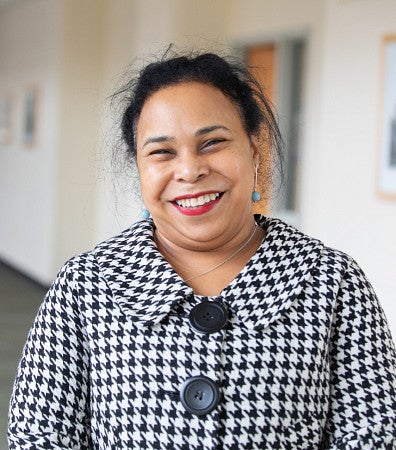
Michelle McKinley
Bernard B. Kliks Professor of Law
"I study the legal history of slavery and emancipation in the early modern world, and the ways that women and children used the courts to argue for their freedom. I love historical archives and bringing the stories of people who struggled for their freedom into the present."
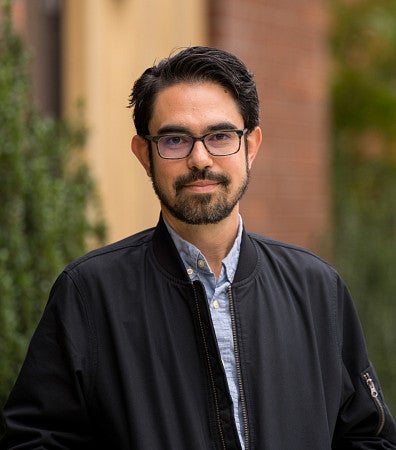
Zachary Wallmark
Associate Professor of Musicology
"I'm fascinated by music's power to move people. I study the science of how musical sounds are transformed into emotional and social responses, and how these responses play out in different historical and cultural contexts of musical engagement. Music is one of the most powerful technologies of human expression, emotion, and collective cohesion we have as a species, yet we know very little about the mechanisms underpinning music's powers. My work sheds light on this vital human obsession."
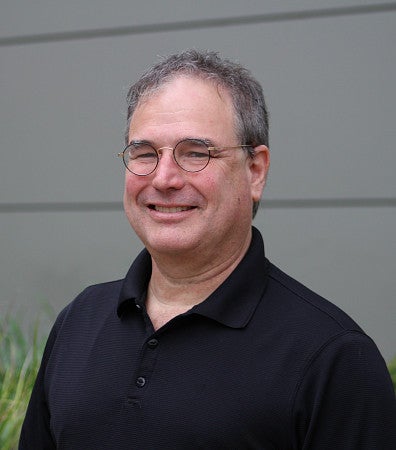
Bruce McGough
Professor of Economics
"Modern macroeconomic theory takes rational decision-making as a behavioral primitive. My work models economic actors as boundedly-rational, continually learning how best to respond to changing economic conditions, and it supports rational decision-making as one of several types of plausible emergent outcomes. Which type of outcome should be expected to obtain depends on nuanced modeling assumptions; and which outcome does obtain can have far reaching implications for macroeconomic dynamics and policy prescriptions."
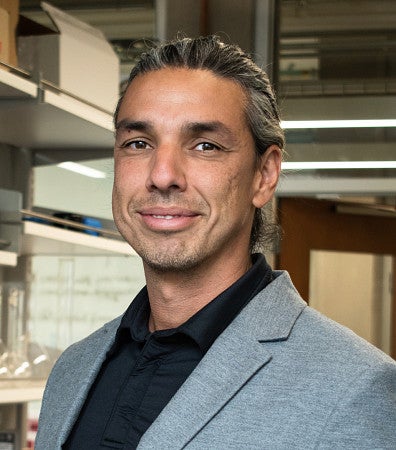
Lucas Silva
Associate Professor of Environmental Studies and Biology
"I am the founder and director of UO’s Soil-Plant-Atmosphere (SPA) Research Laboratory. At the SPA Lab, we do interdisciplinary scientific research that combines theories, observations, experiments, and models to guide sustainable development. Our research, teaching, and community engagement focus on social and ecological processes that affect SPA interactions from molecules to ecosystems, and from seasons to millennia, as a critical step for improving climate change mitigation and adaptation. Our recent projects and publications feature new strategies for conservation, management, and restoration of ecosystems aimed at improving environmental justice and sustainability goals at local to regional scales and across biomes, from deserts to rainforests."
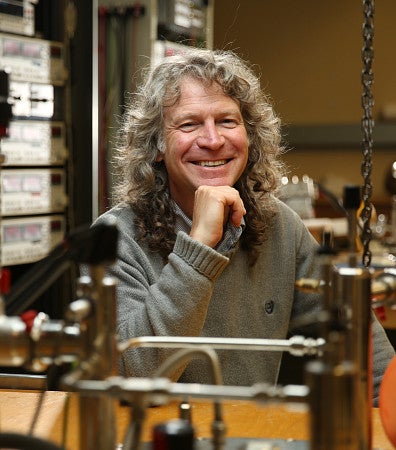
Richard Taylor
Professor of Physics, Psychology, and Art
"My research uses science and art to address fundamental questions about fractals (patterns that repeat at different sizes). My work focuses on applying the concept of bioinspiration to nanoscience, visual science and visual art. For the nanoscience project, I develop bio-inspired electronics that have the same fractal shapes as the neurons they interface with, allowing restoration of sight to people with retinal diseases. The visual science project investigates how people look at fractal images and how this reduces their stress and mental fatigue. The visual art project employs computer analysis to detect fractal patterns in art works, which can be used to better understand aesthetics and also be used as an authenticity tool. It is a privilege to work with our students on these interdisciplinary projects."
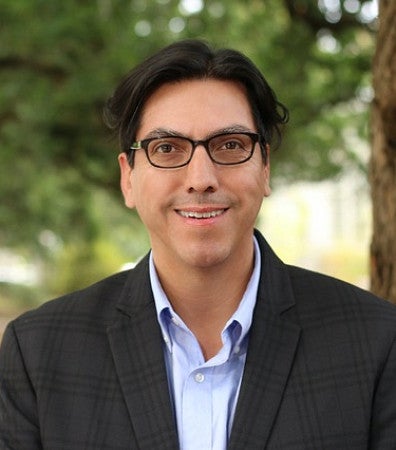
Christopher Chávez
Carolyn S. Chambers Distinguished Chair in Advertising and Director of the Center for Latina/o and Latin American Studies
"I am a media studies scholar with a professional background in advertising and marketing. Consequently, much of my research focuses on the specific ways in which market forces shape cultural production. Generally, my research lies at the intersection of Global Media and Consumer Culture."
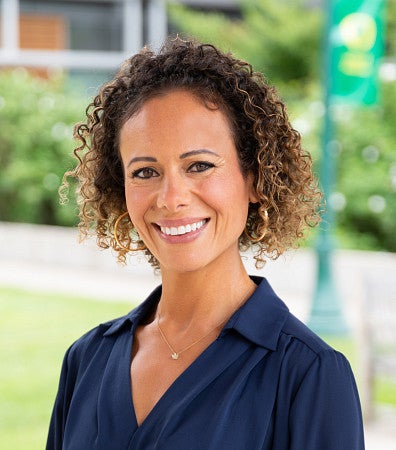
Rhonda Nese
Assistant Professor of Special Education and Clinical Sciences
"My research is rooted in activism and advocacy because we know that exclusionary discipline practices transform our educational environments from places of support to places of harm. And that harm is disproportionately dispensed to students of color, students with disabilities, and students living in poverty. We also know that children thrive in learning environments that are affirming of their identities, supportive of their needs, inclusive of all learners, welcoming, and safe. These are not just touching sentiments, this is science. Schools utilizing our inclusive interventions have documented improvements in classroom engagement and student-teacher relationships and have fewer classroom disruptions and disciplinary needs. Beyond our research, my hope is that our educational communities feel empowered to prioritize human connections and re-examine how we support all learners in their efforts to thrive."
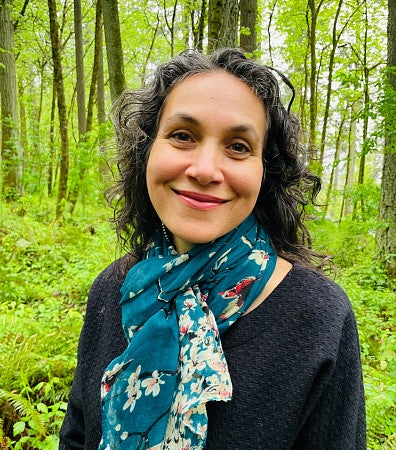
Ilana M. Umansky
Associate Professor, College of Education
"Too often, schools are set up in ways that see immigrant and multilingual students as having linguistic or cultural 'problems' that need to be remedied. But the opposite is true. These students have immense linguistic and cultural assets that will help them in their lives as well as enrich their communities and classrooms. I work with states, districts, and schools to understand how current educational policies and practices impact multilingual and immigrant students, and I help them design, build, and extend policies and practices that recognize these students' skills and ensure they can thrive in school. I love the applied nature of my research, and the opportunity I have to work collaboratively with education leaders, educators, and families."
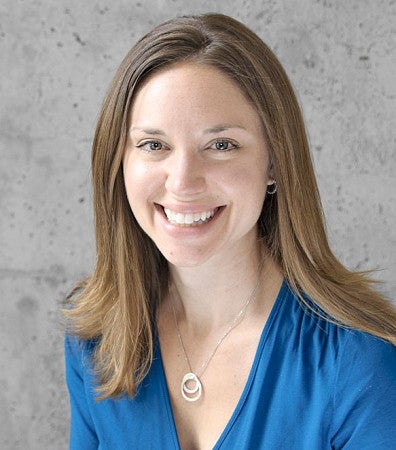
Jennifer Pfeifer
Professor of Psychology
"My lab and I study the interconnected trajectories of biological and social development throughout adolescence, and their relationships over time with well-being, mental health, and behavior. This is important because adolescence is a time of dramatic change in our bodies, brains, peer and family relationships, and place in society. Linking what happens biologically and socially during this period, to important outcomes for adolescents, is essential to understanding how to help youth thrive. More broadly, we also aim to communicate the core science of adolescent development—to help others realize adolescence is a period of opportunity, where well-timed investment and intervention can produce positive change for society."
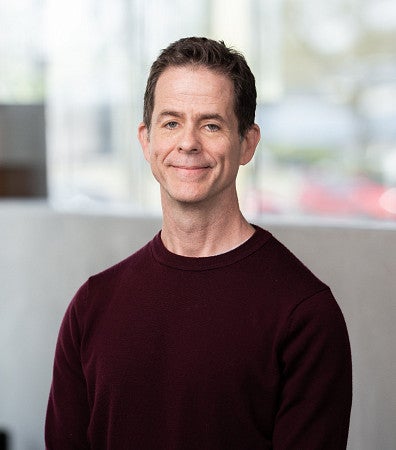
Joe Lowndes
Professor of Political Science
"Anti-democratic politics are dramatically on the rise in the United States, and around the globe. Yet we still have much to learn about how and why we have arrived at this moment. My research, both in the archives and in the streets, aims to make sense of these important changes that are quickly reshaping our political world."
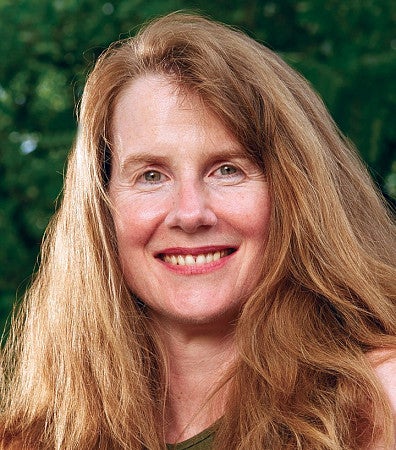
Mary Christina Wood
Philip H. Knight Professor of Law
"I develop legal approaches to hold government accountable for protecting our vital natural resources as an endowment to sustain future generations. My main focus is to invoke fundamental rights to secure a stable climate system and other survival resources. Recently I developed a pubic trust framework to advance forest protection. I also focus on Indian treaty fishing rights and tools to assert native environmental sovereign prerogatives."
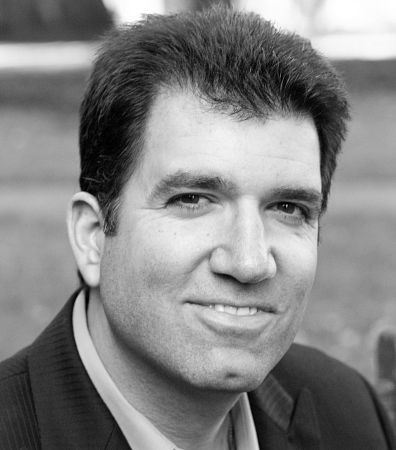
Michael Malek Najjar
Associate Professor of Theatre Arts
"The classroom and rehearsal hall are places for intellectual growth, creative expression, and open dialogue. I am dedicated to a pedagogy that encourages students to achieve their highest potential through collaboration, exploration, and inspiration. I believe that the theatre is a necessary forum in society that transforms audiences and artists alike."
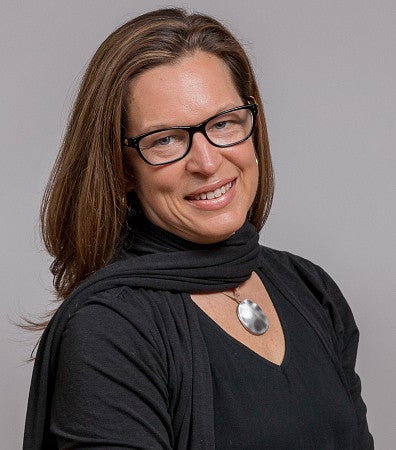
C.J. Pascoe
Associate Professor of Sociology
"I love working as a sociologist because I get to use the scientific method to study the social world. This means that I spend much of my time not only learning about how the social world works, but how I can use that knowledge to make the world a better place. In particular, because I study schools, young folks, and inequality, I have the opportunity to help build educational environments that better support all young people. Every day I consider myself lucky that my job is to teach others how to use the study of society to improve the lives of others."
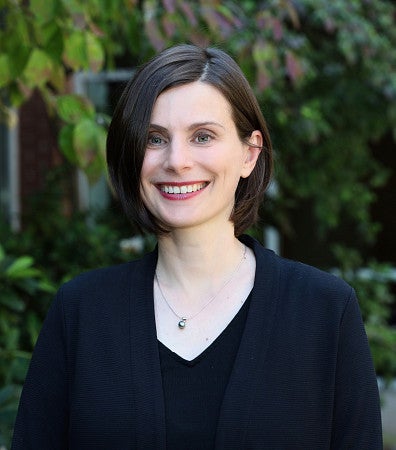
Jen Reynolds
Professor of Law
"I love the law, and I strongly believe that society must have formal, fair legal processes that support wise governance as well as individual access to justice. But many problems—indeed, many of the most challenging interpersonal disagreements and societal conflicts that we face—cannot be solved solely by judges or legislators. To address these kinds of problems, we must learn to manage conflict and negotiate agreement effectively. My research focuses on how lawyers and others can develop the skills for difficult conversations and complex problem solving. I draw from diverse resources to explore the resolution of conflicts: from traditional negotiation theory to dispute system design, and even lessons from the Star Wars universe!"
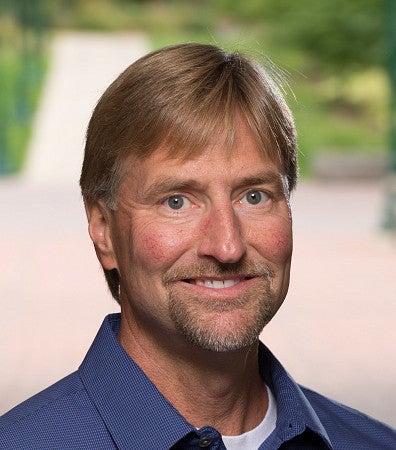
John R. Seeley
Professor and Associate Dean for Research, College of Education
"As a prevention scientist, my research is focused on the implementation and dissemination of evidence-based programs, practices, and usable innovations that can address the mental and behavioral health challenges that our youth are facing today. Through community-academic partnerships, we are positioned to have an immediate impact on the settings that serve our youth by providing effective implementation strategies and support, particularly to schools and community-based care organizations. By collaborating with families, practitioners, and other community partners, I am hopeful that we can reduce the stigma around mental health issues and prevent the negative sequelae of youth experiencing emotional and behavioral disturbances with evidence-based prevention efforts and linkages to quality care."
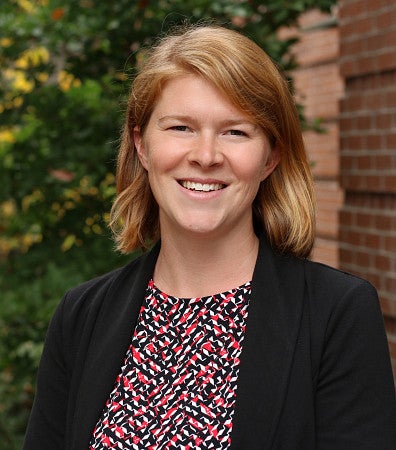
Lauren Lanahan
Associate Professor of Management
"Research is my passion. My research investigates the relationship between institutions and the production of scientific knowledge. I examine outcomes related to innovation, technological change, and economic growth. In an effort to be responsive to the changing scientific frontier, I employ an interdisciplinary approach to examine these issues from understudied angles. My research offers important implications for strategic decision-making as it pertains to innovation in both the private and public sectors."
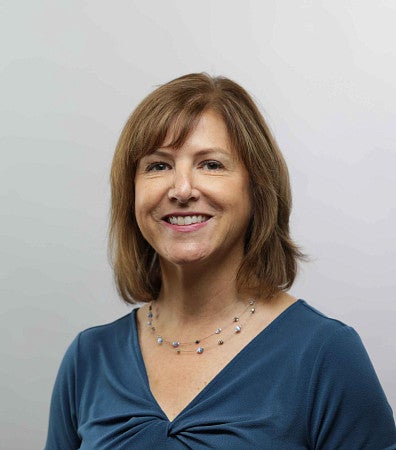
Leslie Leve
Lorry Lokey Chair in Education
"I am passionate about conducting research that improves our understanding of child development. There is so much that we still need to learn about why some children thrive yet other children struggle, and how children’s social, emotional, and cognitive development unfolds into adolescence and adulthood. By increasing our knowledge about factors that are supportive or harmful to child development, we can translate this knowledge into programs, interventions, and practices that promote healthy development, particularly for children from underserved backgrounds. My own research has focused specifically on children and families involved in the foster care or juvenile justice system, adoptive families, families who have experienced substance misuse, and on risk and protective factors for girls and women. I have also worked with the Latinx community on developing and delivering health-focused interventions."
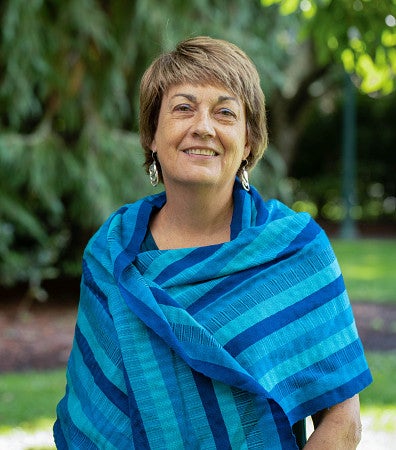
Lynn M Stephen
Philip H. Knight Chair and Distinguished Professor of Anthropology
"My research and teaching illuminate processes of settler colonialism and white supremacy in the U.S. and Latin America, Indigenous knowledges, diasporas and histories, and how race, gender, sexuality, and labor intersect historically and today. Social justice and collaboration are at the center of my research and teaching. Empowering students, co-researchers and people I work with to put forward their own critical questions, answers, and telling their own stories is a top priority. I have a strong commitment to research projects that produce findings accessible to the wider public and my work includes films and websites, as well as scholarly publications and books. I serve as an expert on immigration, asylum, and gendered asylum in the U.S., violence against women and girls, transnational communities, and Indigenous people in diaspora from Mexico and Central America."
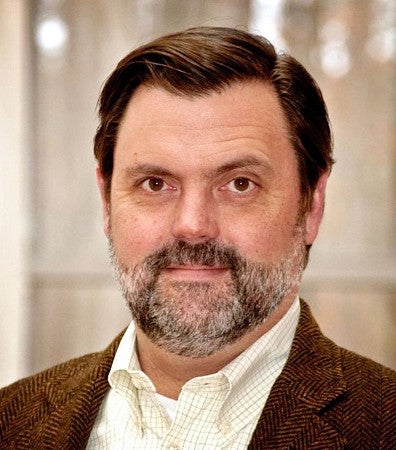
Stephen J. Shoemaker
Professor of Religious Studies and Ira E. Gaston Fellow in Christian Studies
"Religion reflects attempts to create and recreate meaning in societies over time. Translating the most ancient Christian hymns, documenting devotion to Mary in early Christianity, studying emergence of Islam in its earliest days—my work reveals how communities search for an elevated purpose amid changing cultural forces. Anchored in moments that unfurl into histories, their search helps us understand the influence of religion in society. It is hard to find a more timely topic, or a more timeless one. It is a great privilege to be a part of the University of Oregon’s vibrant and diverse scholarly community. With endless opportunities to learn and exchange perspectives on our shared past—what more could a historian want?"
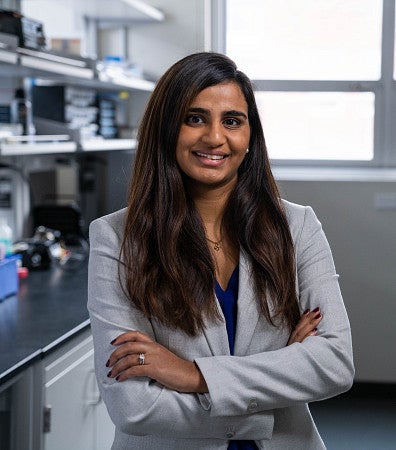
Marian Hettiaratchi
Assistant Professor, Knight Campus
"Our research has been enriched by the amazing breadth of expertise in chemistry, biology, human physiology, and bioengineering available through the students and faculty at the University of Oregon. We have the opportunity to make a much bigger impact on society when we combine different fields to solve healthcare challenges."
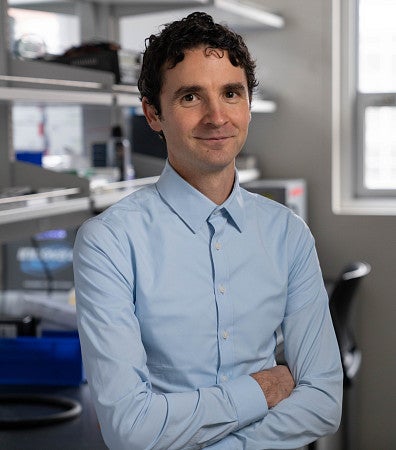
Calin Plesa
Assistant Professor, Department of Bioengineering, Knight Campus
"As a researcher passionate about the intersection of synthetic biology, protein engineering, and gene synthesis, my work is driven by the immense possibilities that lie within the field of biological systems design. I believe that if we could rationally design novel biological systems with predictable behaviors, we could fundamentally transform the world by decarbonizing the economy, addressing major healthcare disparities, and tackling environmental pollution, among many other potential achievements. To me, my work represents a continuous journey toward unlocking the mysteries of the natural world and harnessing the power of biology to make the world a better place. Ultimately, I hope that it will inspire others to join this critical mission and continue the pursuit of a brighter, more sustainable future for all."
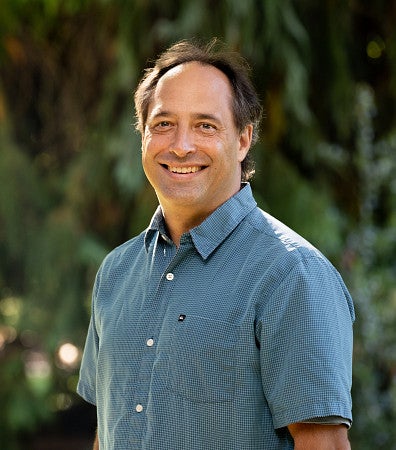
Cristopher Niell
Associate Professor of Biology
"Our brain performs the remarkable feat of transforming the light arriving at the eye into our perception of the visual scene in front of us. Our research seeks to understand this process, which enables us to effortlessly see the world—recognizing faces, reading a book, or catching a ball. In particular, we study how the connections between neurons in the brain, together with their patterns of activity, act like miniature circuits performing computations on the signals coming in from the eye. In addition to revealing how our brain can create our perception of the world, we hope that our work may eventually pave the way for new treatments addressing blindness and other vision-related disorders such as dyslexia or hallucinations."
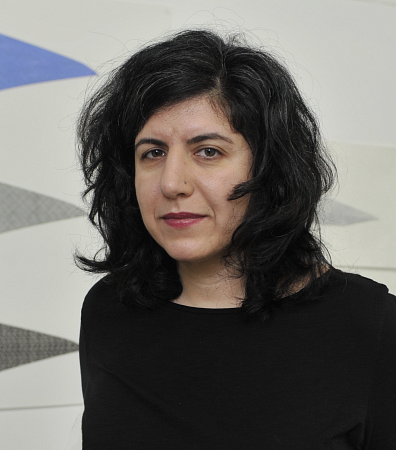
Tannaz Farsi
Professor of Art
"My art practice is project based and my strategies are steeped in the history of sculpture, installation, and conceptual art practices, allowing me to use a range of mediums to produce objects, photographs, and prints. I am interested in the friction that is instigated within the mixing of these conventions—whether it is an aesthetic structure that illuminates a political condition or an attempt to bring an irrational idea or an idea that does not have definitive form into a physical structure. Through what I consider acts of translation, of text as mass, of light as sculpture, of material with its own structural growth system rather than something inanimate, I make available an element of chance that can promote a sense of uncertainty—a reflection on the conditional or contextual nature of objects and images in our periphery and how these finite forms intersect and govern our bodies."
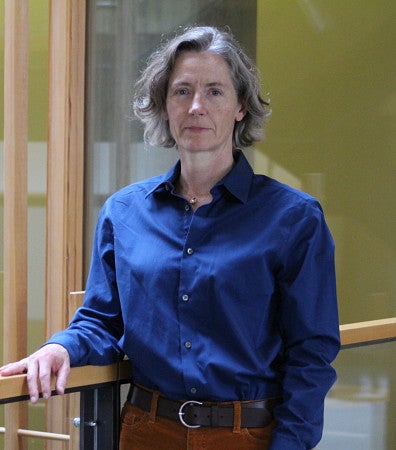
Emilie Hooft
Associate Professor of Earth Sciences
"I am a geophysicist fascinated with how magma moves beneath Earth’s surface and how structures in the Cascadia subduction zone control earthquake rupture. My research uses novel, dense geophysical data sets and inverse modeling on high performance computers. I have led numerous research expeditions, including to several oceanic spreading centers, the Iceland and Galápagos volcanic hotspots, and in the Pacific Northwest. My most recent field work includes installations of numerous seismic sensors on the seafloor around the Galápagos islands and in the coast ranges of Oregon and southern Washington. I am dedicated to engaging and mentoring diverse students and early career scientists in STEM."
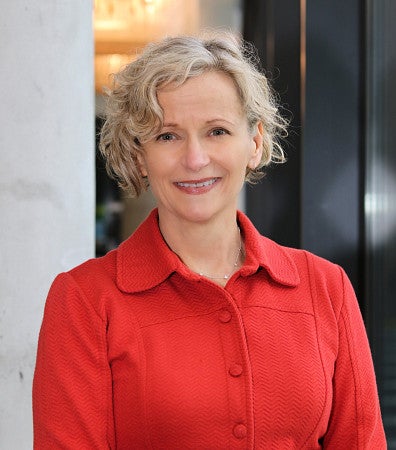
T. Bettina Cornwell
Philip H. Knight Chair and Department Head of Marketing
"Why are some people willing to pay more for sustainably produced products? What communication strategies could reduce consumer use of plastics? Why is a sense of community important in sport experience? How do young children develop a preference for foods that deliver a flavor hit? I am a behavioral researcher in marketing with a background in cognitive psychology. I study why people engage in specific behaviors. My research contexts include sport, wellness, and public policy. I am inspired by my students and colleagues to ask 'Why' and 'How' questions that help us imagine a better world."
